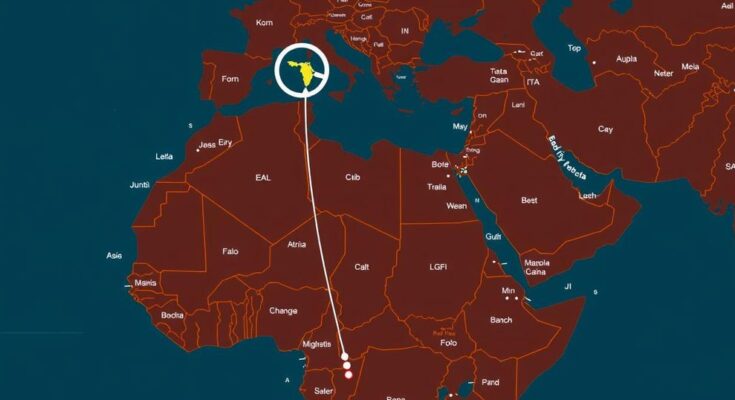Donald Trump’s ‘America First’ policy may significantly shift U.S. foreign relations in the Horn of Africa, particularly concerning Sudan and Ethiopia, by prioritizing national interests possibly at the expense of established support structures and alliances.
The evolving geopolitical landscape of the Horn of Africa is poised for significant transformations under the influence of former President Donald Trump’s ‘America First’ agenda. This approach has notably altered U.S. foreign relations, emphasizing national interests often at the expense of long-standing alliances and foreign aid structures. Consequently, the implications for countries such as Sudan and Ethiopia could be profound, as the U.S. reassesses its priorities in facilitating regional stability and addressing humanitarian crises. As America pivots towards prioritizing its direct strategic interests, both nations may experience shifts in diplomatic and economic support, which could exacerbate existing tensions or create new dynamics within the region.
The Horn of Africa has experienced ongoing conflict, economic challenges, and humanitarian crises that have drawn the attention of international powers, including the United States. Historically, U.S. foreign policy in the region has balanced between promoting democratic governance and supporting stable relationships with key nations. However, the ‘America First’ policy has shifted this focus towards a more transactional approach, raising concerns over the sustenance of ongoing aid efforts and diplomatic commitments, essential for maintaining peace and addressing socio-economic issues in countries like Sudan and Ethiopia.
In conclusion, the former Trump administration’s ‘America First’ policies have the potential to reshape U.S. involvement in the Horn of Africa. By prioritizing national interests, the U.S. may inadvertently undermine efforts aimed at fostering stability and addressing pressing humanitarian needs in countries such as Sudan and Ethiopia. The realignment of U.S. foreign policy necessitates close observation, as outcomes may significantly alter the strategic landscape of the region.
Original Source: www.al-monitor.com




